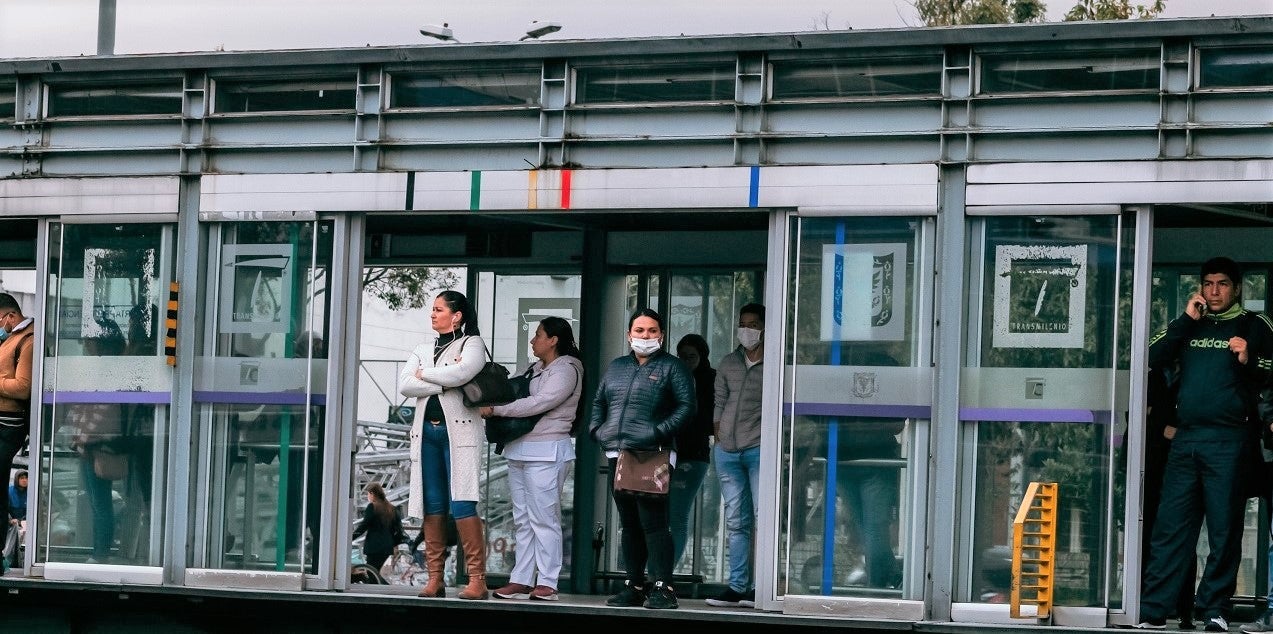 ركاب في محطة الحافلات ببوغوتا، ترانسميلينيو. © غابرييل ل.غيريرو / شاترستوك
ركاب في محطة الحافلات ببوغوتا، ترانسميلينيو. © غابرييل ل.غيريرو / شاترستوك
The World Bank Group is committed to providing a fast, flexible response to the coronavirus pandemic. We are offering financing, policy advice and technical assistance in every region, across every area from healthcare and education to trade and technology. In this blog series we explore how different teams around the World Bank Group are responding to the challenges ahead.
1. How is COVID-19 affecting the region?
So far, 31 countries and 12 territories have reported nearly 5,464 cases and 67 deaths, with a 120 percent increase in the last 72 hours. Brazil, Chile, Peru, Ecuador, and Panama are reporting the highest number of cases, and some of them have closed borders and declared a state of emergency. COVID-19 has already had a negative impact on tourism, trade, and productivity. To respond, Latin American countries are already preparing for drastic and costly measures that we have seen in other parts of the world. Some are considering precautions that could have social and economic impacts in the long term, such as school and border closures.
At the same time, the arrival of the disease has forced governments to review the level of public investment in their health systems, and the need to ensure adequate investments in public health, including prevention and health promotion.
2. What are the biggest challenges the pandemic poses?
The main challenges come from the unpredictability of the disease. It’s unclear how it will be affected by decreasing temperatures and the return to school of millions of children in the Southern Hemisphere. So far, mortality rates are especially high for those aged 70 and older, and for those with pre-existing conditions. Although younger populations are at lower risk of complications, it is important that prevention campaigns target the whole population to reduce transmission.
Also, COVID-19 challenges our health systems’ capacity to respond to an extraordinary number of patients needing similar services. It comes on top of a dengue outbreak in several countries with already burdened hospital capacity. Not only are hospitals overwhelmed, but so are other areas of care or support, such as the availability of medical supplies and an exhausted workforce.
3. How is the World Bank addressing these issues? Who is the Bank working with?
World Bank teams are in touch with member countries to address any requests for assistance and offer technical support as needed. Across the region, the Bank is coordinating with the Pan-American Health Organization to ensure that the two organizations’ resources are available to countries in an efficient and coordinated manner.
In practical terms, we are working very hard with the region’s countries to protect the population. On March 17, the Boards of the World Bank and IFC approved a $14 billion fast-track facility to assist countries and companies in their efforts to prevent, detect, and respond to the spread of COVID-19. This fund is a global effort, and in our region it will expand beyond the health sector and support countries’ economies with a focus on the most vulnerable people. The global economy was already sluggish before the pandemic hit. Definitely, COVID-19 will place our region’s economies in a more difficult situation, and recovery will require a communal and integrated effort.
4. What is the Bank’s longer-term approach to such crises?
The Bank is helping countries mitigate the impact of COVID-19 but also build their capacity to be ready for any future health crisis. We seek to make the investment sustainable through stronger and more resilient health systems. We would like to help countries prevent, prepare, detect, respond to, and recover from diseases that have endemic, emerging, and pandemic potential. The focus includes antimicrobial resistance, and how diseases interact with other conditions.
We are working closely with WHO/PAHO to ensure that the international regulations for emergencies improve; this includes 13 areas that help prepare countries for health emergencies. One clear lesson from earlier health crises that we’re already applying to COVID-19 is the need for strong collaboration and closer partnership to support actions across the region.


Join the Conversation